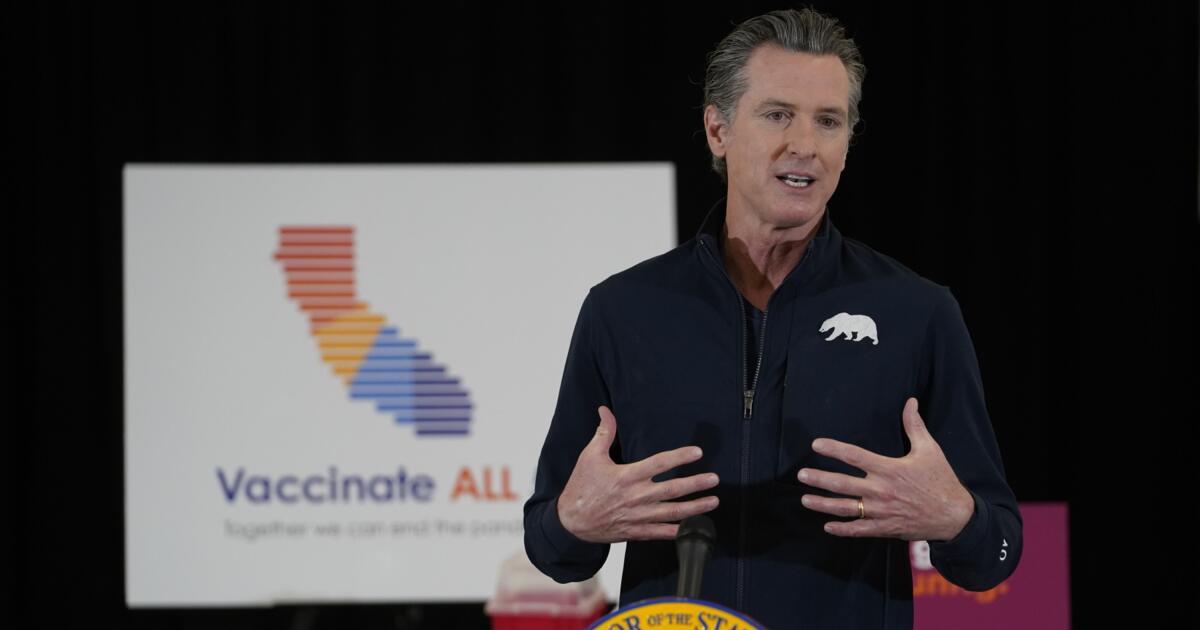Introduction to the West Coast Health Alliance
Background
California, Oregon, and Washington are joining forces to create the West Coast Health Alliance, a pact aimed at insulating vaccine guidance and other public health recommendations from political interference. This move is a direct response to the turmoil at the U.S. Centers for Disease Control and Prevention (CDC) under President Trump and Health Secretary Robert F. Kennedy Jr.
The Need for the Alliance
Current State of the CDC
The nation’s top public health agency is being reshaped by Kennedy and his vaccine-skeptic allies, with key leadership fired and the agency in turmoil. The three governors, Gavin Newsom of California, Tina Kotek of Oregon, and Bob Ferguson of Washington, announced the creation of the alliance to keep their states’ health policies unified and grounded in scientific expertise.
Statement from the Governors
"President Trump’s mass firing of CDC doctors and scientists — and his blatant politicization of the agency — is a direct assault on the health and safety of the American people," the three governors said in a joint statement. "The CDC has become a political tool that increasingly peddles ideology instead of science, ideology that will lead to severe health consequences. California, Oregon, and Washington will not allow the people of our states to be put at risk."
Recent Developments
CDC’s Advisory Committee on Immunization Practices
In June, the three states issued a joint statement condemning Kennedy’s decision to remove all 17 members of the CDC’s Advisory Committee on Immunization Practices. Among the replacements named by Kennedy are appointees who spread vaccine misinformation and relayed conspiracy theories during the COVID-19 pandemic, according to the Associated Press.
Kennedy’s Response
Kennedy said the change would improve public trust by ensuring members of the committee didn’t have “any specific pro- or anti-vaccine agenda.” Kennedy has warned that more turnover could be coming at the agency.
The West Coast Health Alliance
SACRAMENTO — California, Oregon and Washington are joining forces to insulate vaccine guidance and other public health recommendations from political interference, a direct response to turmoil at the U.S. Centers for Disease Control and Prevention under President Trump and Health Secretary Robert F. Kennedy Jr.
Govs. Gavin Newsom of California, Tina Kotek of Oregon and Bob Ferguson of Washington announced Wednesday the creation of the West Coast Health Alliance, a pact that aims to keep their states’ health policies unified and grounded in scientific expertise. The move comes as the nation’s top public health agency is being reshaped by Kennedy and his vaccine-skeptic allies, with key leadership fired and the agency in turmoil.
“President Trump’s mass firing of CDC doctors and scientists — and his blatant politicization of the agency — is a direct assault on the health and safety of the American people,” the three governors said in a joint statement. “The CDC has become a political tool that increasingly peddles ideology instead of science, ideology that will lead to severe health consequences. California, Oregon, and Washington will not allow the people of our states to be put at risk.”
In June, the three states issued a joint statement condemning Kennedy’s decision to remove all 17 members of the CDC’s Advisory Committee on Immunization Practices. Among the replacements named by Kennedy are appointees who spread vaccine misinformation and relayed conspiracy theories during the COVID-19 pandemic, according to the Associated Press.
Kennedy said the change would improve public trust by ensuring members of the committee didn’t have “any specific pro- or anti-vaccine agenda.”
Kennedy has warned that more turnover could be coming at the agency.
In the announcement for the newly formed West Coast Health Alliance, the states said the focus would be on providing evidence-based recommendations about who should receive immunizations while ensuring the public has access to credible information about the safety and efficacy of vaccines. The alliance will share immunization recommendations, but each state will also pursue independent strategies based on “unique laws, geographies, histories, and peoples.”
Dr. Erica Pan, director of the California Department of Public Health and the state health officer, said it’s imperative that California stand with medical professionals.
“The dismantling of public health and dismissal of experienced and respected health leaders and advisors, along with the lack of using science, data, and evidence to improve our nation’s health are placing lives at risk,” Pan said in a statement.
Conclusion
The West Coast Health Alliance is a crucial step in protecting the health and safety of the people of California, Oregon, and Washington. By providing evidence-based recommendations and ensuring access to credible information, the alliance aims to mitigate the effects of political interference on public health policy. As the nation’s top public health agency continues to face turmoil, the West Coast Health Alliance stands as a beacon of scientific expertise and a commitment to the well-being of its citizens.
FAQs
Q: What is the West Coast Health Alliance?
A: The West Coast Health Alliance is a pact between California, Oregon, and Washington to keep their states’ health policies unified and grounded in scientific expertise, insulating vaccine guidance and other public health recommendations from political interference.
Q: Why was the West Coast Health Alliance formed?
A: The alliance was formed in response to the turmoil at the U.S. Centers for Disease Control and Prevention (CDC) under President Trump and Health Secretary Robert F. Kennedy Jr.
Q: What is the focus of the West Coast Health Alliance?
A: The focus of the alliance is to provide evidence-based recommendations about who should receive immunizations and ensure the public has access to credible information about the safety and efficacy of vaccines.
Q: How will the West Coast Health Alliance operate?
A: The alliance will share immunization recommendations, but each state will also pursue independent strategies based on their unique laws, geographies, histories, and peoples.


